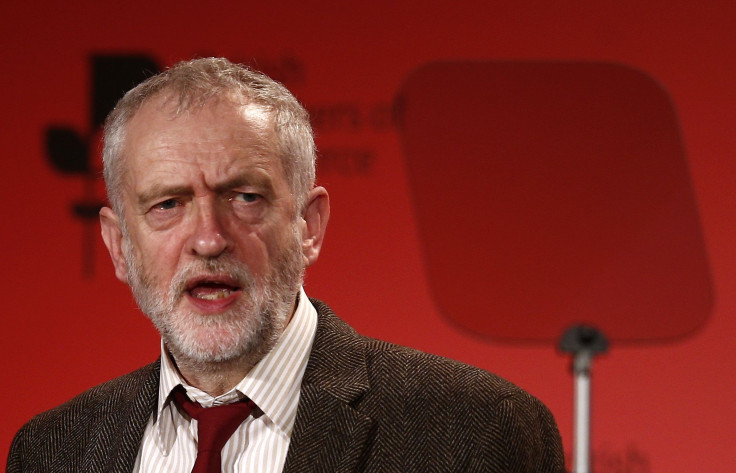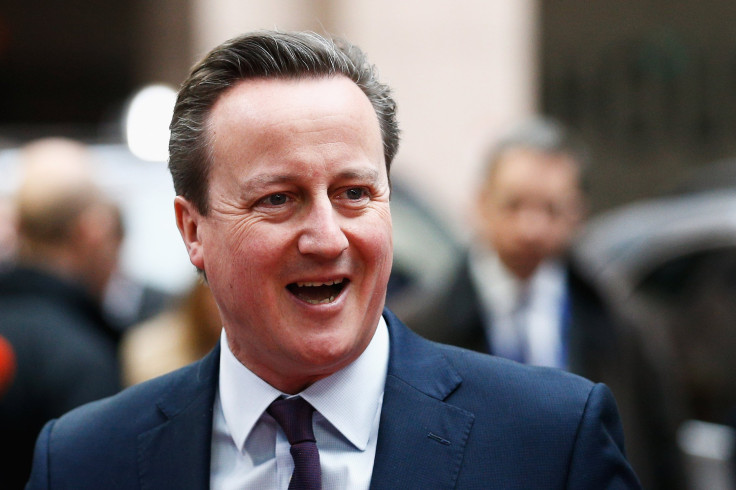Is The UK A Tax Haven? London, British Islands Questioned After Panama Papers Leak

Debate over tax regulation and tax evasion in Britain and its territories has been reignited after the millions of leaked documents known as the Panama Papers identified hundreds of thousands of secret firms registered to Britain and British islands. While known less for tax loopholes than Panama or Switzerland, Britain has long had relatively lax tax laws for foreign corporations and individuals, leading some critics to accuse it of being a tax haven.
“You get to the point where you say ‘Yes, we’re the biggest tax haven in the world,’ ” said Richard Murphy, a political economist at City University in London who is known for his outspoken tax reform activism. Murphy noted his evaluation included Britain's “network of taxation” — its dependencies and overseas territories.
Tax havens, or places where foreign businesses and individuals have little or no tax liability, are very difficult to define and often a matter of opinion, with experts disagreeing over what countries or territories meet these criteria. Andorra, Monaco, Panama and Switzerland are widely considered tax havens for their business-friendly tax laws, though the term itself is often seemingly a question of semantics.
“Secrecy is the way in which we define a tax haven,” said Murphy, noting how the term often connotes clandestine dealings or tax evasion.
British Prime Minister David Cameron and members of Parliament exchanged rhetorical blows this week over potential changes to the country’s tax regulation. Labour Party Leader Jeremy Corbyn did not hesitate to lob criticism at the prime minister, arguing that Parliament needed to launch a full investigation into British tax practices and consider direct rule of certain British islands that are well known for being tax havens. Cameron’s deceased father was also named in the Panama Papers, leading Corbyn to call for a full tax investigation of all Britons identified by the documents. Cameron has denied holding any shares or being involved in his father’s company.
“If they become a place for systematic evasion and shortchanging of the public in this country then something has to be done about it,” Corbyn said of the British Virgin Islands. “Either those governments comply or a next step has to be taken.”
Of the 10 places in the world with the highest number of companies identified by the Panama Papers, the British Virgin Islands had by far the densest concentration, with 113,000 corporations named by the Panama-based Mossack Fonseca law firm. The firm found itself at the center of controversy this week after millions of its files were obtained by journalists, reportedly through an outside hacker. The documents name thousands of individuals — including powerful businesspeople and heads of state — who owned secret offshore companies that may have been used as mechanisms for tax evasion. British Anguilla was No. 7 and Britain was No. 10 on the list of locations, according to the data from the International Consortium of Investigative Journalists, which released the papers.
Corporate taxes in Britain hover around 20 percent — compared with 40 percent in the U.S., for example — and multinational companies aren’t taxed on their overseas income. The relatively low tax has pushed foreign companies to move to Britain or set up operations in London or dependencies like Jersey and the Isle of Man. To make this process legal, foreign companies often have to merge with a British corporation. U.S. pharmaceutical giant Pfizer was set to merge with British firm AstraZeneca to take advantage of the tax codes in Britain, but a last-minute crackdown from the U.S. Congress prevented the acquisition Wednesday.
Despite promises from both the Labour Party and Cameron’s Tories to change the tax loopholes, they have remained in place, in part because they benefit London, some experts said. With rich multinational corporations come rich foreigners who buy British property, spend money on British services and eat and shop at some of the capital city’s most expensive establishments. Their corporations also provide jobs to local people, some have argued.

“They didn’t touch certain of these loopholes because there was an understanding that it makes the U.K. a competitive place to invest, a competitive place for financial services,” said Charles Lichfield, a European analyst for the Eurasia risk consultancy in London.
Still, many politicians say the average British citizen hasn’t benefited from the presence of these billion-dollar corporations and that London would remain competitive as a financial services hub even if it closed some of these loopholes, citing its international influence. Britain is losing up to 7.2 billion pounds, or $101.6 billion, in tax revenue, because of these tax avoidances.
Corbyn has been an outspoken advocate of closing loopholes and tightening the tax codes that have allowed overseas income to go untaxed. He even suggested that Britain directly rule some of the islands until their tax system is reformed. The political reality of reinforcing British rule would be tricky, however, and these loopholes could remain in place for years to come.
“I can’t see a situation where the U.K. gains more sovereignty or the right to boss them around on how their financial taxation systems work,” said Lichfield.
© Copyright IBTimes 2024. All rights reserved.





















